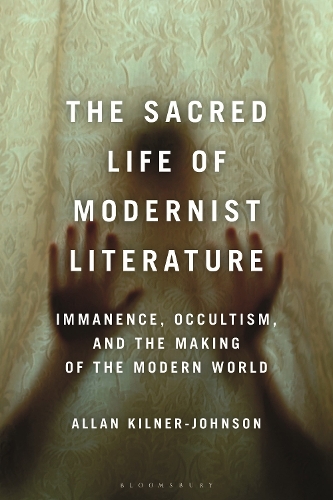
The Sacred Life of Modernist Literature: Immanence, Occultism, and the Making of the Modern World
(Paperback)
Available Formats
Publishing Details
The Sacred Life of Modernist Literature: Immanence, Occultism, and the Making of the Modern World
By (Author) Allan Kilner-Johnson
Bloomsbury Publishing PLC
Bloomsbury Academic
25th January 2024
United Kingdom
Classifications
Professional and Scholarly
Non Fiction
Literary studies: fiction, novelists and prose writers
Literary studies: plays and playwrights
809.9112
Physical Properties
Paperback
184
Width 156mm, Height 234mm
Description
Probing the relationship between modernist literary experimentation and several key strands of occult practice which emerged in Europe from roughly 1894 to 1944, this book sets the work of leading modernist writers alongside lesser known female writers and writers in languages other than English to more fully portray the aesthetic and philosophical connections between modernism and the occult. Although the early decades of the twentieth centurythe era of cocktails, motorcars, bobbed hair, and warare often described as a period of newness and innovation, many writers of the time found inspiration and visionary brilliance by turning to the mysterious occult past. This books principle intervention is to reimagine the contours and boundaries of literary modernism by welcoming into the conversation a number of significant female writers and writers in languages other than English who are often still relegated to the fringes of modernist studies. Well-remembered poets and novelists such as Ezra Pound, W.B. Yeats, and Aleister Crowley were tied to occult beliefs, and this book sets these leading figures alongside less well-remembered but equally splendid modernists including Paul Brunton, Mary Butts, Alexandra David-Neel, Florence Farr, Dion Fortune, Hermann Hesse, and Rudolf Steiner. From the little magazines where occultism and Fabianism were comfortable companions, to consulting rooms of psychoanalysts where archetypes were revealed to be both mystical and mundane, to the forbidden mountain trails that led to formidable spiritual teachers, the conditions of modernism were invariably those conditions which inspired a return to the occult traditions that many thinkers believed had long evaporated. Indeed, in many ways these traditions were the making of the modern world. By uncovering hidden hopes and anxieties that faced a newly modern Western Europe, this book demonstrates how literary modernists understood occultism as a universal form of cultural expression which has inspired creative exuberance since the dawn of civilisation.
Reviews
Allan Kilner-Johnson demonstrates with emphatic assurance how myriad spiritual seekers, too often overlooked in existing surveys of aesthetic modernism for example, Rudolf Steiner, Dion Fortune, Mary Butts and Florence Farr were crafting new writing modes by excavating imaginatively the ancient recondite past. * Andrew Radford, Senior Lecturer in Contemporary Literature, University of Glasgow, UK *
Author Bio
Dr Allan Kilner-Johnson is Senior Lecturer in English Literature & Associate Dean (Doctoral College) at the University of Surrey, UK.
